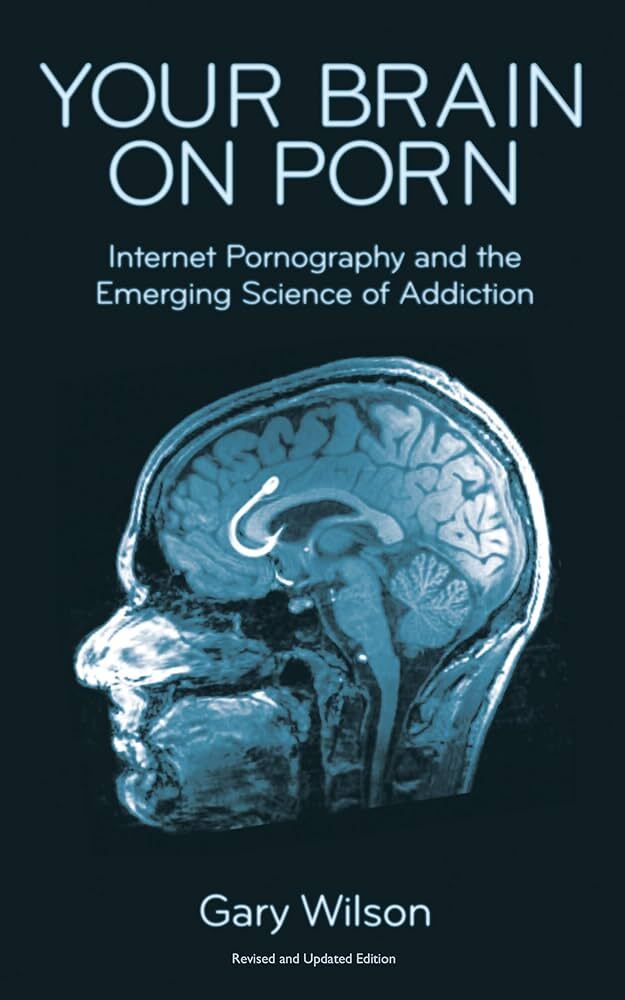Your Brain on Porn: Review

Christian Dominique

Your Brain on Porn: Review
AWE Challenges Anecdotal Accounts of Pornography’s Neuroscientific Impacts
“What Wilson reveals about porn mirrors what we must confront across the digital landscape: our brains were never built for infinite stimulation.”
Gary Wilson’s Your Brain on Porn occupies an unusual but important place in contemporary nonfiction: a synthesis of neuroscience, psychology, and anecdotal evidence that attempts to explain a new form of addiction in real time. The book is at its best when Wilson bridges neuroscience with layperson storytelling, unpacking how the brain’s reward circuitry can be hijacked by hyper-stimulating digital pornography.
From a critical standpoint, the work occasionally leans heavily on self-reported testimonies, which, while compelling, may raise questions of selection bias. Nevertheless, this narrative device serves the purpose of destigmatization, allowing readers to locate themselves in a larger shared experience.
Wilson’s explanation of “rebooting”, abstaining from pornography to reset dopamine pathways, is an important contribution. It has sparked widespread informal experimentation and, arguably, influenced clinical and research conversations about behavioral addiction, including internet addiction, video game addiction, and social media addiction. AWE criticizes Wilson’s “rebooting” approach, which has paved the way for linked movements such as “NoFap” (no masturbation and sex) and “No Nut November,” the self-love equivalent of “Sober October.” There is no scientific evidence supporting these claims, and a fellow researcher presented a paper last year concluding that the “No-NoFap” (our humorous renaming) group in a controlled study fared equally or better in all examined dimensions compared to the NoFap group, proving the philosophy ineffective and potentially harmful in practice. Another peer-reviewed article concluded that NoFap promotes "toxic ideas," including the belief that men can "prove" their masculinity through abstinence, and that the movement reinforces harmful, pseudoscientific beliefs. Religious and cultural components can also increase the stigma, shame, and self-blame we see in some of our affected clientele. We want to increase awareness and agency around this important, still somewhat taboo, topic.
While many NoFap internet communities and ongoing challenges seem to support and give a voice to those struggling, their solutions are largely negative, narrow, inadequate, and unrealistic. We aim to provide the possibility of healthy intimacy, affection, and sexuality, not only for youth who feel increasingly isolated, unseen, unheard, or even discarded, but also for struggling couples who now compete with technology for real connection, compassion, and care.
The same flawed logic is seen in the mainstream advocacy of “digital detox” or “dopamine detox,” which often fail to understand the underpinning neuroscience of expected and aleatory rewards, desires, aversions, hormones, habits, and habituation. Popular discourse and proposed solutions are everywhere yet lack deeper awareness, better tools, and a more balanced, positive, and holistic understanding. They demonize and offer supposed quick fixes to complex issues involving neuroscience, needs, narratives (internal and external), coping strategies, experiences, and expectations (conscious and unconscious). At AWE Digital Wellness, we aim to provide resources, discussion, and human support.
Stylistically, the prose is direct and free of jargon, making it accessible to non-specialists. As literature, it is not a polished academic treatise but rather a hybrid work: part primer, part testimony, part call to awareness. Its enduring value lies less in ground-breaking theory than in its ability to catalyze conversation about an underexplored public health concern.
“Wilson’s achievement is in rendering the invisible visible: showing how porn use reshapes not only private behavior but cultural expectations of intimacy.”
Wilson’s emphasis on neuroplasticity and the possibility of “rebooting” aligns with contemporary strategies in digital wellness: awareness, abstinence, and recalibration of habits.
It may not provide all the answers, but it succeeds in reframing pornography addiction as part of a larger conversation about how modern digital environments exploit our biology. The book highlights the addictive patterns formed when instant gratification rewires the brain’s reward circuits, a mechanism strikingly similar to what we observe in social media overuse, video gaming, or compulsive smartphone checking. Most strikingly, the work underlines how vulnerable younger populations are, given their developing brains and heightened susceptibility to novelty and stimulation. For organizations committed to promoting digital wellness and mental health, Wilson’s book underscores the urgency of preventative education, open dialogue, and evidence-based support systems.
As Wilson passed away in 2021, we hope to expand his work to be not primarily anti-porn, but rather pro-connection. Let’s build and discuss instead of blame.
What is your opinion? Comment below.
Know someone affected or worried? Contact us privately.